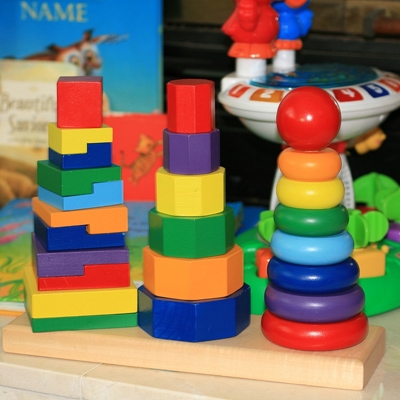Tooth Care
All teeth are important, even primary teeth! Promote strong teeth and gums by helping children brush and floss every day. Young children need adult help to brush properly. Let children try to brush their teeth by themselves. Follow-up by brushing their teeth again and flossing between teeth.
1 – Brush teeth every day. Children (and adults) should brush their teeth at least twice each day. Brush after meals and snacks if possible. If they cannot brush, then help them rinse their mouths with water. Always brush teeth before going to bed.
2 – Put toothpaste on the toothbrush. Just a tiny smear of toothpaste is enough! Use toothpaste labeled “ADA approved” and which includes fluoride. Fluoride helps strengthen teeth.
3 – Put the toothbrush against your teeth. Use a toothbrush with soft bristles. Gently move the brush in a circular motion over teeth and gums. Get a new toothbrush every 3 or 4 months, or sooner if the brush bristles are damaged. Use either a regular or battery operated toothbrush.
4 – Brush every tooth. Brush the front, back, and top of every tooth. Teach children to brush three or four teeth 10 times, and then move on to the next 34 teeth. Gently brush the gums to help keep them healthy. Brush the tongue to remove bacteria that can cause cavities.
5 – Spit out the toothpaste. Spit out the toothpaste. Children may also want to rinse with water after brushing. Fluoride toothpaste is good for your teeth. But if children swallow toothpaste every day, they could get too much fluoride. This can cause stains or discoloration on teeth. Young children should not use mouthwash until they know how to “swish and spit.” Many mouthwash products contain alcohol and/or fluoride, which should be spit out not swallowed.
6 – Floss between the teeth. Flossing helps remove food and plaque from between the teeth where brushing cannot reach. Start flossing when the child has two teeth that touch. Ask your dentist how often your child should return for checkups or treatment. Always consult a dentist if your child has tooth or mouth pain or dental problems.

